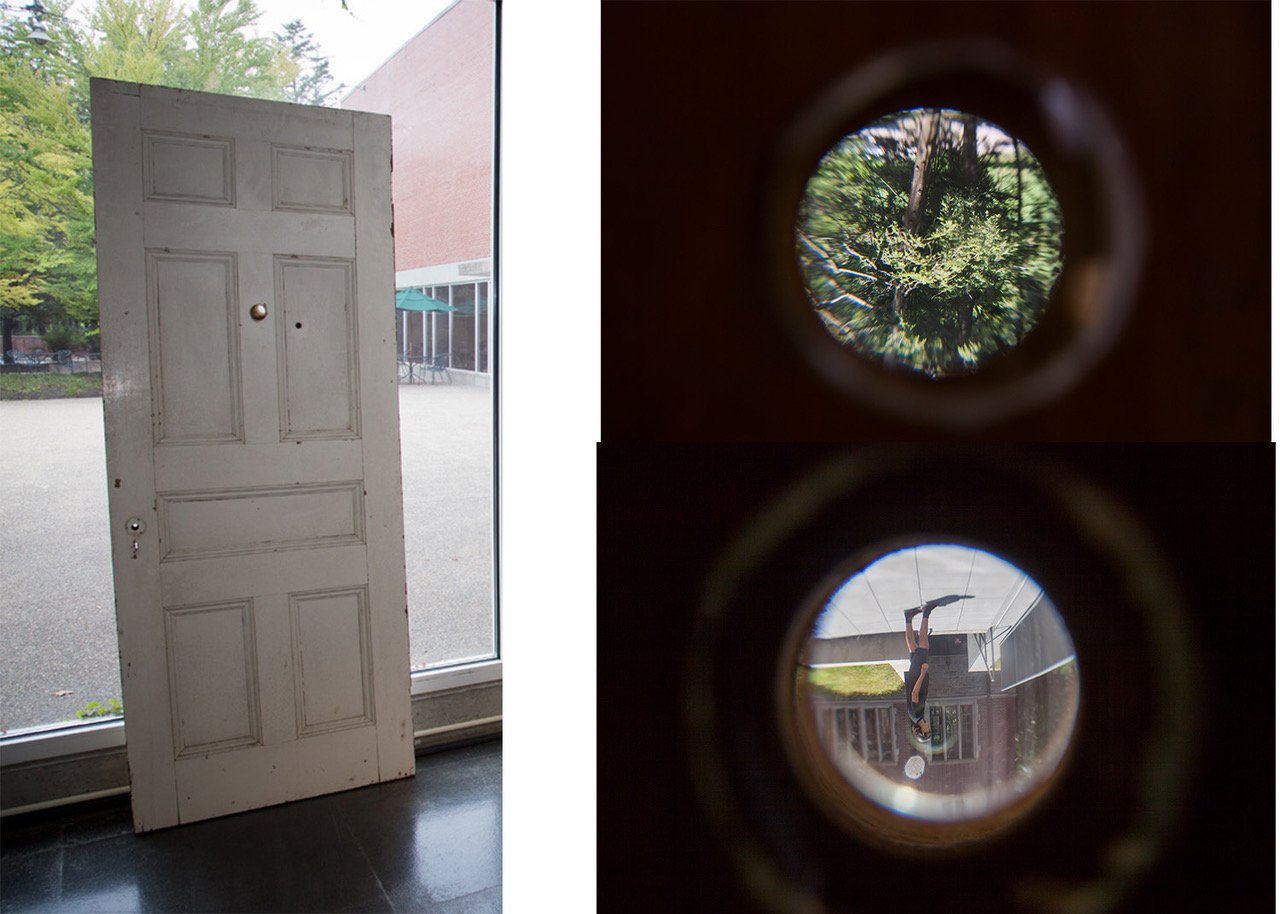Daniela Rivera
She Never Kicked the Ball / Ella Nunca Chuteo la Pelota, 2021, Charcoal, copper point, and soccer ball bounces on azurite dyed paper, mirror, and table display, 30x41x52”
As a cultural producer I consider my responsibility to always challenge the construction of stereotypes or categories that discriminate, isolate and violently define the identities of others. I work with ideas of displacement, memory, and cultural migration to celebrate difference and reject categorization. I build, paint, and draw spaces that invite us to be vulnerable together, where I hope to celebrate differences and cultural exchange through shared authorship. My work deals with ideas of learning and re-contextualizing instead of unlearning. I engage with the subversion of pre-established orders and hope to open space for the creation of new meanings through the use of meaningful materials, reconfiguration of forms, and the challenge of functions. I address episodes in political history, the history of art and personal history to generate open-ended conversations among viewer, artist and subject. It is finally the relationship between them that brings the work to completion. I am invested in generating projects that always leave space for the public to intervene and share in the authorship of the piece. I have found that surrendering authorship allows for responsible collaboration and active reflection. I believe my work tangoes with the process of the Baroque painting drive and the presentational strategies and formal undertones of Minimalist art and some of the conceptual elements of Arte Povera, a fundamental contradiction but a world of possibilities for staging.
Fragments for the History of Displacement is based on the recounted experience of 13 Latin American immigrants to the United States of America, each arriving in the US as adults. The entry doors are installed in the lobby of the museum, leaning against the windows and blocking the outside view. Each door has a peep hole fitted with double convex lenses, turning each vista upside down. The viewers can hear each immigrant’s stories and memories from earbuds installed at the narrator’s ear height in the doors. The piece explores the iterative experience of loss, its unutterable quality, its active irresolution, and draws attention to this relentless and exhausting experience.
In Chiuquicamata women found a way to get visibility and access to political representation. They played the system and got to be recognized as the female branch of the Cobreloa soccer team. They never kicked the ball. Visibility brought the possibility of presenting candidates for the largest labor union in the country. Later Mirta Moreno was elected as the president of the Copper workers labor union, the largest in the country, representing over 4,000 workers in the mining industry.



